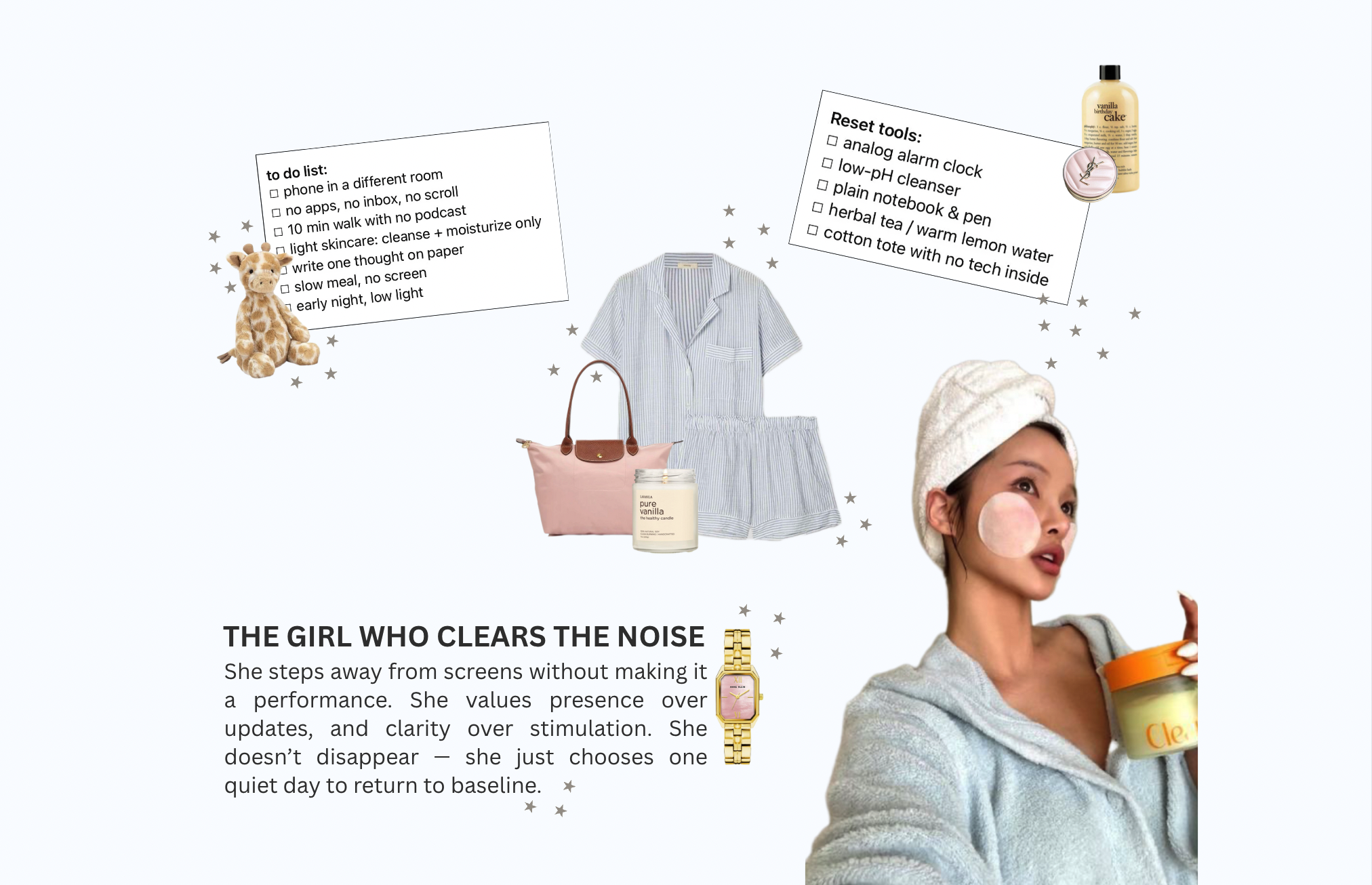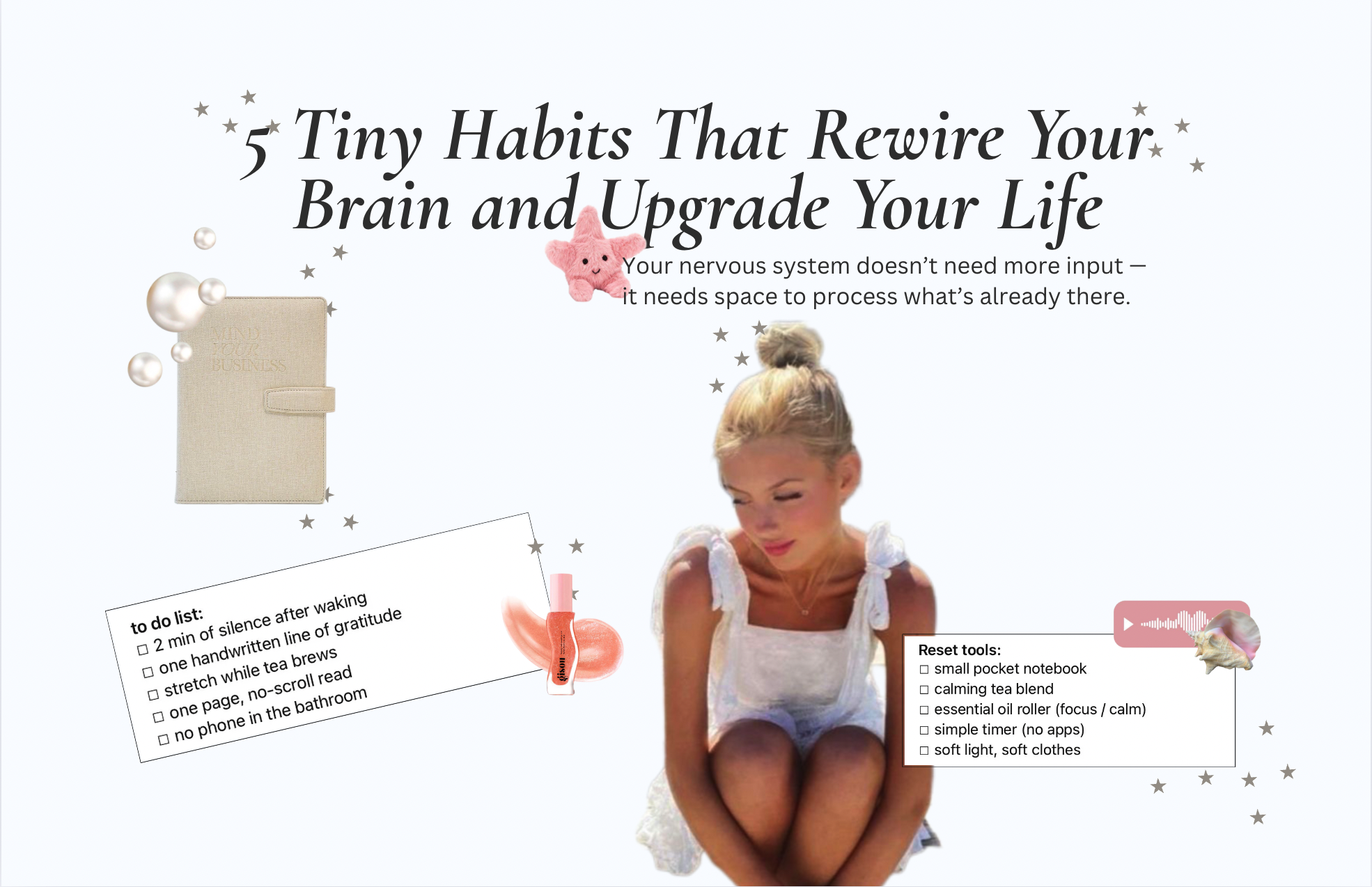We often look for transformation in big things — quitting a job, moving cities, starting over. But what if the real shift begins with what you do in the margins?
These five micro-habits take no more than a few minutes, but they quietly reshape how you think, decide, and move through your day.
Putting Your Phone in a Different Room While You Think
If your brain sees a screen within 30 seconds of waking up, it sets a reactive tone for the day.
You’re not giving yourself space to generate a thought — just consuming what someone else posted.
Even if you don’t check messages, the mere act of grabbing your phone teaches your nervous system: “We are already behind.”
This habit isn’t about being productive — it’s about reclaiming the ability to stay with your own thoughts, unfiltered.
Ideas feel different when you’re not passively influenced by noise.
🌷 Ending the Day by Noticing One Thing You Handled Well
This micro-check-in grounds you in self-trust, which is more sustainable than confidence.
If you build the habit of witnessing your own steadiness, you’ll rely less on external validation.
You don’t need a journal or a structured prompt. Just ask yourself: “What did I carry well today?”
It could be how you managed a difficult emotion, how you respected a boundary, or simply how you showed up when no one noticed.
Asking Yourself ‘Is This Still Serving Me?’ Before Continuing Anything
This habit is about pausing before continuing anything — a task, a routine, a habit — and checking whether it’s still worth your time.
We often keep doing things just because we started them. But not everything needs to be finished. Not everything deserves to stay.
Use it when you:
- Keep opening an app without purpose
- Follow routines that no longer help
- Stick to tasks, subscriptions, or habits out of inertia
Make it a habit: Attach the question to transitions — when starting your day, switching tasks, or scrolling out of habit.
Starting the Day With Water (and Nothing Else)
Physiologically, it signals your nervous system: “I’m not in a rush.”
Your brain is 75% water. After 7–8 hours of sleep, it’s slightly dehydrated — and that alone can affect your focus and mood.
Make it effortless: leave a filled bottle next to your bed before sleep.
It seems small, but over time it teaches your body: you come first — before content, news, or replies.
Looking at the Sky for 30 Seconds (Every Day, No Matter What)
Whether you’re late, anxious, thriving, or tired — look up.
This is not spiritual advice. It’s regulation.
Looking at the sky literally expands your field of vision, lowering cortisol and anchoring you in your body.
It’s a physical shift that creates an emotional one.
🪞 Final Thought
None of these habits are dramatic. That’s the point.
They’re the kind of actions no one praises, but they build the kind of stability that makes everything else possible.





